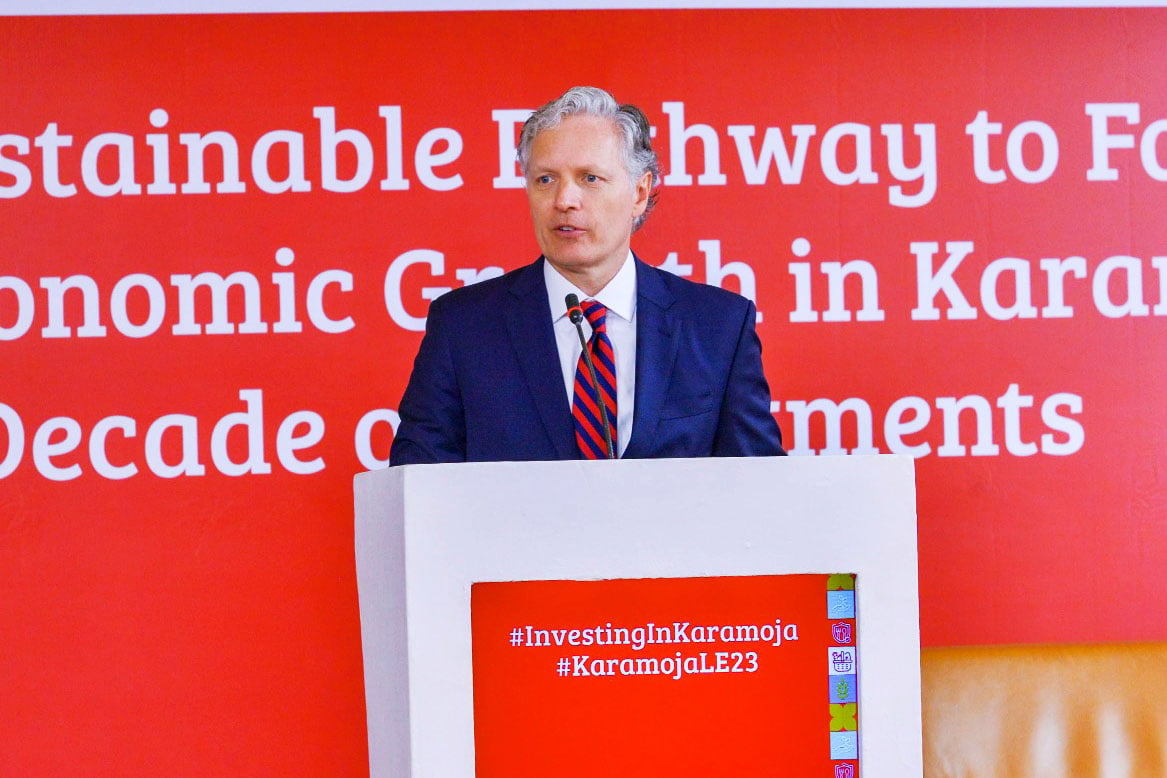Prime
Reflections on the Pearl of Africa

USAID/Uganda Mission Director, Richard Nelson.
What you need to know:
- It will require courage to speak up about human rights for everyone, it will demand a return to integrity.
I arrived in Uganda in January 2020 ready to lead the US Embassy’s United States Agency for International Development (USAID) team as we continue our 60+ year mission to on behalf of the American people to improve the prosperity, health, education, and democratic aspirations of Ugandan citizens.
As the lead development agency of the US government, USAID plays a vital role in our diplomatic missions, and pursue our activities with a keen sense of responsibility toward the Ugandan people and to the American public who entrust us with their tax dollars.
A few weeks after my arrival I made my first trip outside Kampala, travelling to Kabale and Kisoro to visit a project focused on improving resilience. I was particularly impressed with a group of strong young women who had dropped out of school, but who, with our help, had started their own businesses to support themselves.
Since that first trip, I have been just about everywhere in Uganda, meeting people and learning how all of USAID’s interventions help them become more resilient. I met a woman whose life was saved from drug-resistant tuberculosis (TB) after receiving special treatment at a TB facility we supported.
I listened to a young woman who, after receiving USAID training, started a business making saucepans and was selling them throughout Uganda and even South Sudan. I danced with villagers on a mountaintop in northern Karamoja to celebrate their partnership with an eco-tourism company establishing an adventure campsite. USAID’s impact continues to be immense.
Just since I arrived in 2020, nearly 500,000 people have emerged out of poverty in the 41 districts where we operate agriculture programmes, 4,500 children are now studying in new classrooms we built, 55,000 people now access clean water from community boreholes we dug, and an incredible 5.3 million people are enjoying the liberating power of electricity through our work to connect people to modern energy.
Unfortunately, I’ve also witnessed a decline in some aspects of Uganda’s progress. Uganda has once again dropped in the Global Corruption Perceptions Index (27 to 26 in 2023). It seems more elected officials, public servants, business owners, and others ignore the religious teachings of all major faiths condemning stealing, lying, and cheating.
The Golden Rule to treat others as you wish to be treated has been set aside with the passage of the Anti-Homosexuality Act (AHA). No matter what your moral beliefs are, the AHA is a foreboding sign of deteriorating human and civil rights. If society allows one group to be singled out for dehumanising treatment, it can easily turn on other groups with similar treatment--your group might be next.
We’ve also seen a disturbing decline in education. A recent study revealed that 80 percent of P2 students could not read a single word, yet Uganda continues to spend less on education than any other country in East Africa, except for South Sudan, and is the 11th lowest in all of Africa (based on percentage of GDP).
The Information Age is accelerating exponentially, and only people with sufficient education will participate. Ugandan children are being left behind. What to do? Just as I have seen Ugandans resiliently bouncing back after Covid, Ebola, floods, drought, teen pregnancy, etc, I believe Ugandans can overcome these challenges.
It will require courage to speak up about human rights for everyone, it will demand a return to integrity, and it will necessitate reprioritisation of the national budget and priorities to strengthen education. But just as the oyster turns unwelcome grains of sand into precious pearls, Ugandans can turn these challenges into something better--something that truly reflects its nickname, the Pearl of Africa.
Richard L. Nelson, USAID Uganda Mission Director




